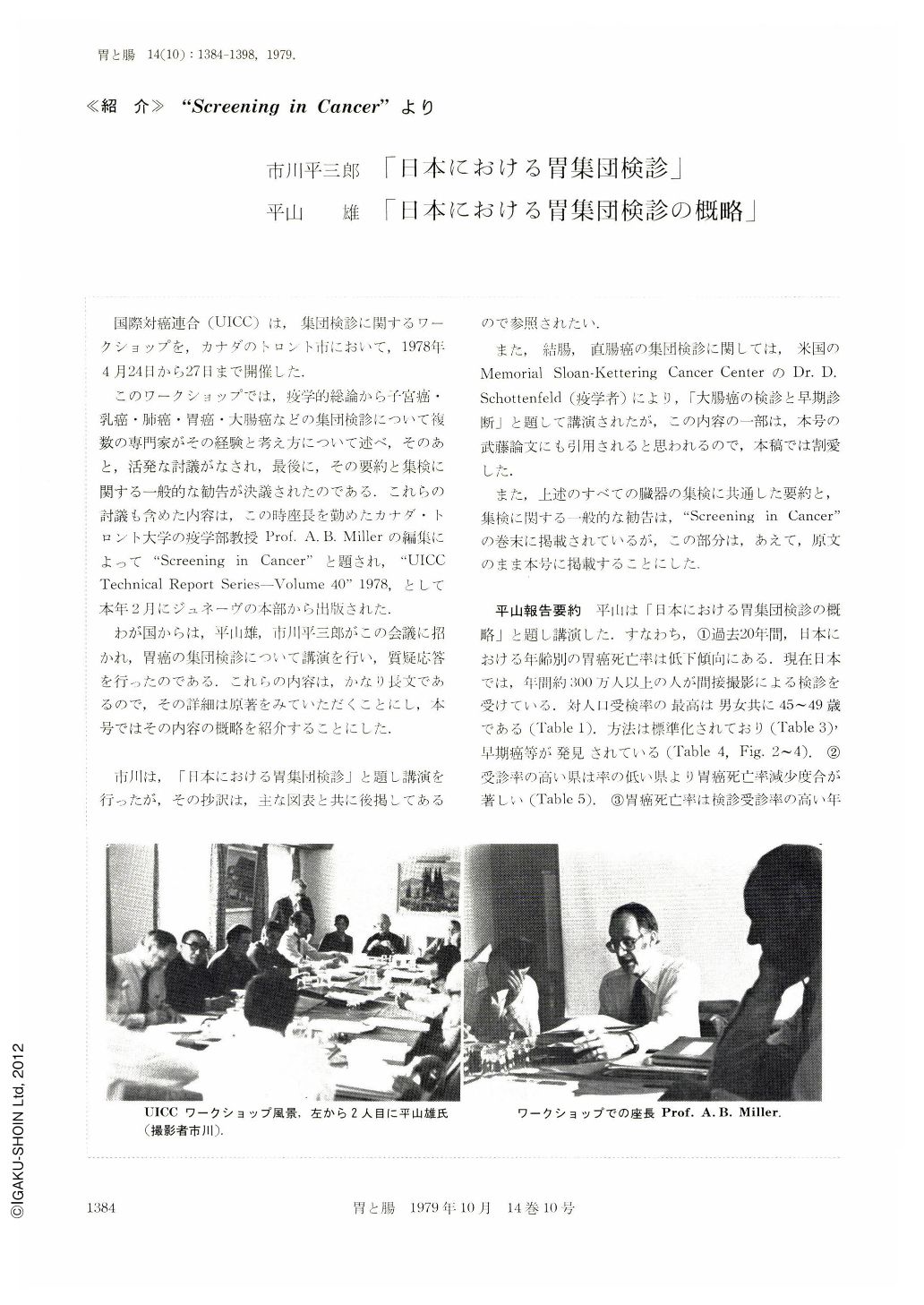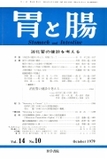Japanese
English
- 有料閲覧
- Abstract 文献概要
- 1ページ目 Look Inside
国際対癌連合(UICC)は,集団検診に関するワークショップを,カナダのトロント市において,1978年4月24日から27日まで開催した.
このワークショップでは,疫学的総論から子宮癌・乳癌・肺癌・胃癌・大腸癌などの集団検診について複数の専門家がその経験と考え方について述べ,そのあと,活発な討議がなされ,最後に,その要約と集検に関する一般的な勧告が決議されたのである.これらの討議も含めた内容は,この時座長を勤めたカナダ・トロント大学の疫学部教授Prof. A. B. Millerの編集によって“Screening in Cancer”と題され,“UICC Technical Report Series-Volume40”1978,として本年2月にジュネーヴの本部から出版された.
In the final session, a number of recommendations concerning cancer screening were developed. It should be appreciated that not all of these recommendations need necessarily be met before a screening programme is introduced, but that all should be carefully considered. It is hoped that these recommendations will help to forestall the premature introduction of new screening programmes and to avoid the ill-advised adoption of screening programmes from other countries. Georgraphic differences in the pattern of morbidity and mortality, and differences in health care practice and facilities, require that each country considering the introduction of a cancer screening programme should do so in the light of its own health priorities and resources and recognize that screening programmes that are successful in one country may be neither successful nor appropriate in another.
In general, if screening is to make an important contribution to the health of the community, the disease for which screening is to be introduced should be common and an important cause of mortality. Although a reduction in populational mortality from the disease for which screening is performed is the objective of a screening programme, it is important to recognize that the life expectancy of the screened population may be little changed even if the programme is successful. In most technically advanced countries, if all cancer were eradicated, the effect of other competing causes of death is such that life expectancy would be increased only by about 2.5 years. Nevertheless, screening for cancer of the breast and cervix may prove to be worthwhile in these countries because of the predilection of these diseases for younger women and the great social and economic importance of reducing death at younger ages.

Copyright © 1979, Igaku-Shoin Ltd. All rights reserved.


